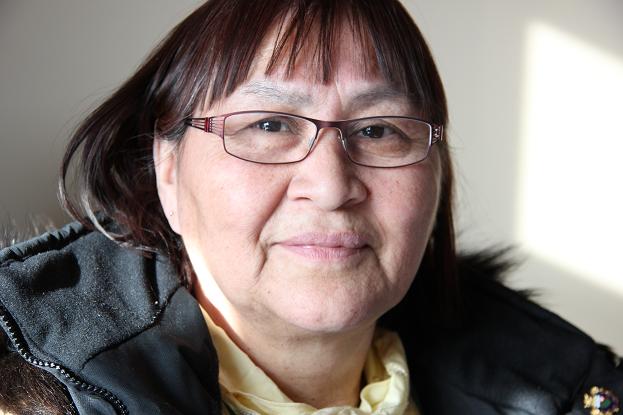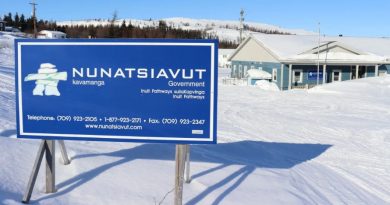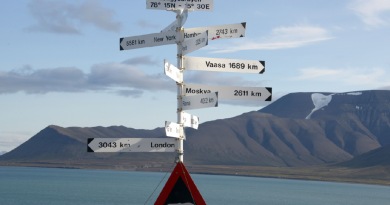The Social Benefit: Q&A with Gina Dolphus
 Name: Gina Dolphus
Name: Gina Dolphus
Occupation: President Deline Land Corporation
Hometown: Deline, Northwest Territories, Canada
Quote: “In communities like this, funding is hard to get, jobs are hard to get, but we have our traditional way of life and can use that as building block for going back to school and on to jobs.”
Intro: As president of Deline’s Land Corporation, Gina Dolphus is responsible for business, social, political and land claims issues in her community. But before her current position, she was a drug, alcohol and mental health worker. Here, she tells why a focus on wellness has to go hand-in-hand with business and economic development in the community.
Eilís Quinn: We hear a lot about the challenges of creating economies in Canada’s polar regions: dropout rates, isolation, lack of industry. You include lack of wellness on that list, why?
Gina Dolphus: There’s drugs, alcohol and that leads to things like family violence and neglect of children. Many people are still suffering from what happened in residential schools. People don’t feel good about themselves, there’s suicide. When you don’t feel good about yourself, how can you help the community?
How does that fit into building an economy in remote communities like Deline?
In order to go on in life, you have to help yourself. You can’t be on a level where you can’t do anything for yourself or your family because we’re surrounded by drug and alcohol abuse and violence. You have to find a way to go back to our traditional life, when we were self-sufficient, and use those skills to further your education and employment.
What kinds of skills are you talking about?
Traditional culture like sewing, moosehide tanning, skinning. We can use these to try to make people strong themselves and then strengthen the community. They can go on and teach that to the children and then go on in life.
How would that help Deline?
In isolated communities like this, funding is hard to get. Jobs are hard to get. But what we can control is our traditional way of life and use that as building block for going back to school and on to jobs.
Can you give us an example?
I was taught sewing by my mom and my grandmother. I went back to school in Alberta, took native clothing design and came back and did creative drawing. I love designing and I helped put on beading workshops for youth, worked on fish scale art. I attended the Inuvik Art festival. I did fashion shows.
And all that started with traditional sewing?
Yes. After that you can go on and find funding to go out and train and then come back help your community and go on. Eventually I went back to school to become a drug and alcohol and grief and recovery specialist. So you see, even in a community that’s isolated and with very little funding, we can still manage to survive.
So that’s why you’re so passionate about this?
In Deline we’re First Nations. We have a beautiful lake. We love hunting, trapping, fishing and our traditional skills like sewing. We have to help ourselves. I want people to know that it’s not easy. It’s a very hard step to take. But if it’s a step you want to take, the support and encouragement is out there. So for anyone reading or listening to this, please begin. And continue to carry on.
Interview edited and condensed by Eilís Quinn
Write Eilís Quinn at eilis.quinn(at)cbc.ca




Thank you for all you do! Walk in peace and alongside these beautiful Northern Communities. Their wisdom is whisperings on the wind! Some of us can hear these whisperings. We are one drum. You are the best part of a smile! Keep on,
In gratitude,
joannA